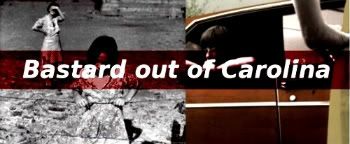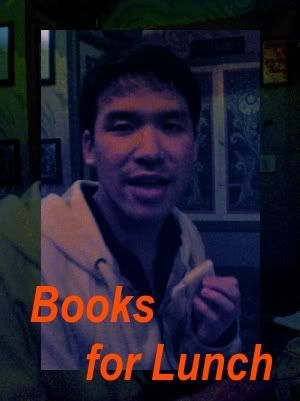(The following is a paper I wrote for a class in response to Barbara Kingsolver's essay about writing.)
In high school I was introduced to many authors, some of whom became my favorites, and some found their way on my blacklist. Among the second category was Barbara Kingsolver, whose collection of short stories entitled Homeland is one of those books my colleagues and I still refer to from time to time as one of the most miserable material we had had to deal with in our high school years. This was why I was so surprised that Kingsolver’s article about writing entitled “A Forbidden Territory Familiar to All” turned out to be my most favorite piece in Writers on Writing.
What disappoint me about most of the articles featured in this book is that they are hardly about writing at all. Some of my favorite writers, like William Saroyan and Annie Proulx, go on and on about things I find insubstantial. When I got around to read Kingsolver’s article, I felt that I had finally found what I was hoping for. Not only is the article about writing, it is also about writing about sex, which is something with which I constantly struggle. In it Kingsolver talks about the embarrassment she feels as she tries to write about sex, thinking about her mother and friends who will be reading the work. This is something that often crosses my mind as I write my raunchy, steamy, slightly if not totally pornographic stories featuring daring themes as infidelity and promiscuity. Having been studying queer theory for several years, my limitation as far as sex (the writing of it) goes is hardly inexistent. However far I go, somebody else probably has gone much further. But what about my readers? One of these days if I could publish some of these stories I have been slaving myself over, it would be an occasion to celebrate. But what would I say when my parents ask to read the work? And what about my friends and future lovers? Will they be reading my stories and think that these all come from my experience? Will my work be taken as serious work of literature or as oversexed gay-lit targeted toward closeted teenagers looking for horny figures to identify with? Some of these questions occupy Kingsolver’s mind. The only thing that stops them from bothering me is the thought that the possibility of getting published is still very far from me, and there is no guarantee that any of my work will ever see the light of any printing press. Kingsolver’s situation, however, is different; as a famous writer, whatever she is working on is on its way to the public, and that raises the stake even higher.
Kingsolver writes the essay with a lot of humor. She describes her struggle with using thesauruses to find a way to write a good sex scene. This I find to be honorable of her; I am certain that most writers use thesauruses but only few would admit to it. Describing action is probably more difficult than mentality, and to describe something that is so ridden with cultural shame as sex is even harder. It seems that the difficulty with writing about sex lies in the way society perceive it. As Kingsolver says, “sex takes place in private, and that’s surely part of the problem” (133). That explains the embarrassing part of it. But Kingsolver’s other challenge is making it beautiful. She says, “Making it beautiful is no small trick. The language of coition has been stolen, or rather, I think, it has been divvied up like chips in a poker game among pornography, consumerism, and the medical profession” (133). But why does it have to be beautiful? The fact that there is pressure to make it beautiful shows Kingsolver’s belief that sex is more than just another daily activity like brushing one’s teeth or tying one’s shoes, when in real life sex can really be unglamorous, boring and routine. The emphasis on the grandness of sex is put on us by society, and, being products of society ourselves, writers like Kingsolver and I simply cannot help it. We want to write a beautiful sex scene that describes good sex, but doing so is difficult, not to mention the embarrassment we set ourselves up to face.
Kingsolver’s conclusion is that we—writers—have to face the beast and “find a way to tell of its terror and beauty” (135). The conditions are that we “accept an uncomfortable intimacy with our readers in the admission that, yes, we’ve both done this. We must warn our mothers before the book comes out. We must accept the economic reality that this one won’t make the core English Lit Curriculum” (135). Having had Kingsolver’s work in my curriculum, it makes me wish that this ambitiously sexy work she is writing had ended up in my curriculum. In high school Comp Lit class many of the materials dealt with rape. I recall how uncomfortable we all felt with the rapes in Michael Dorris’s Yellow Raft in Blue Water, Toni Morrison’s Beloved, and Isabel Allende’s House of the Spirits. Looking back, it seems that our curriculum served to make us even more ashamed and scared of sex instead of see it as a beautiful thing. The act of writing about beautiful sex itself, then, is in some way revolutionary. Many queer theorists deal with the issue of un-shaming sex, but what if sex is never seen as shameful? If our high school curriculum did not manipulate us into being ashamed of our sexuality, writers like Kingsolver and I would probably not have such a hard time writing about it. We, writers and readers, would all be able to deal with sexuality maturely at the age of eighteen or younger. Instead we live in a world full of sexual shame where writers come up with hundreds of other questions while trying to figure out one: how to write about sex?
(Kingsolver, Barbara. “A Forbidden Territory Familiar to All.” Writers on Writing: Collected Essays from The New York Times. Ed. John Darnton. New York: Times Books, 2001. 130-135.)



